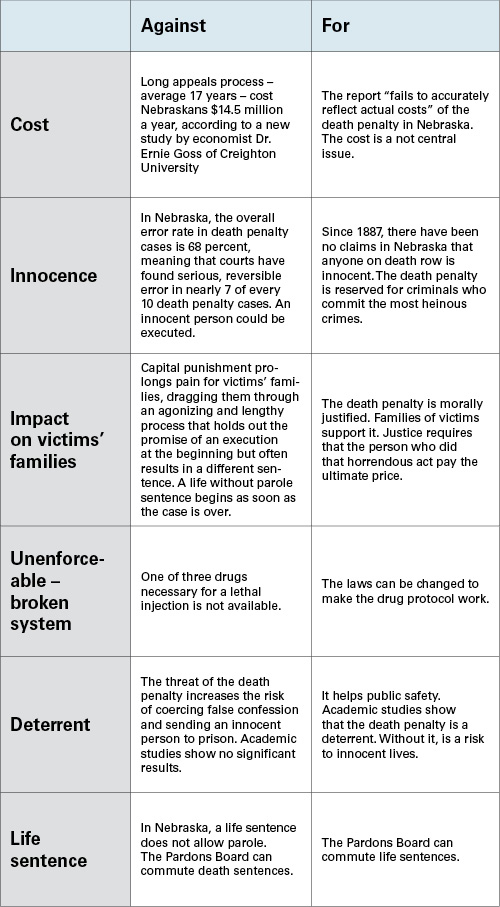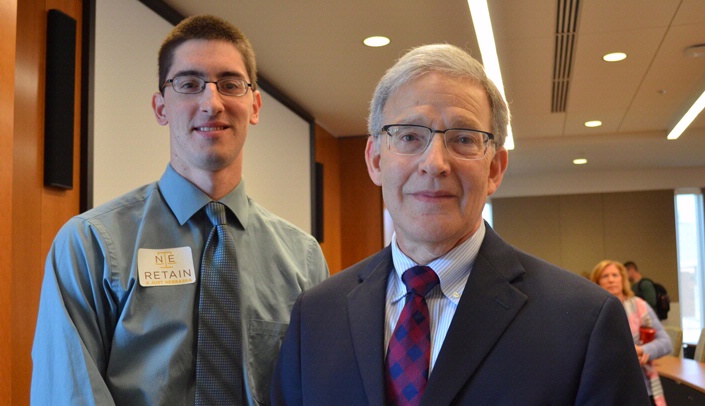The death penalty in Nebraska, the subject of a referendum in the upcoming election, was the topic of a College of Public Health Grand Rounds last week.
 |
Sam Woodruff, an M.P.H. student in public health administration and leader of UNMC’s student delegates, moderated the debate between Bob Evnen, a Lincoln lawyer and former State Board of Education member, who co-founded Nebraskans for the Death Penalty, the group that led the petition drive to get the issue on the ballot this year; and Matt Maly, from Conservatives Concerned about the Death Penalty.
A total of 37 individuals have been executed in Nebraska, including three after 1976, when the U.S. Supreme Court upheld the constitutionality of capital punishment.
The last execution in the state was in 1997, when Robert Williams was electrocuted for the murder of three women. Nebraska now has 10 inmates on death row — all convicted of either multiple murders or child murder.
In 2008, the Nebraska Supreme Court declared that electrocution constitutes a “cruel and unusual punishment” under the Nebraska Constitution. The following year, the state legislature approved a bill to change its method of execution to lethal injection.
Although Nebraska was the last state to adopt lethal injection as its execution method, no such execution has yet been carried out.
In 2011 and 2012, state officials twice imported sodium thiopental from foreign furnishers based in India and Switzerland. The furnishers said they discovered only after delivering the drugs that they would be used in judicial executions, prompting them to demand the return of the chemicals.
The state refused and engaged in a legal battle with the U.S. Food and Drug Administration and the furnishers to keep them. Since the drugs all expired in 2013 and became unusable, the state has been unable to carry out any execution until it finds another way to get the chemicals.
Last year, the Legislature repealed capital punishment, overriding a veto by Gov. Pete Ricketts. In response, death penalty supporters, financially supported by the governor, conducted a successful petition drive to place the death penalty referendum on the ballot.
This means that the death penalty remains legal in the state until the electorate will decide to retain or repeal the bill on Nov. 8.
